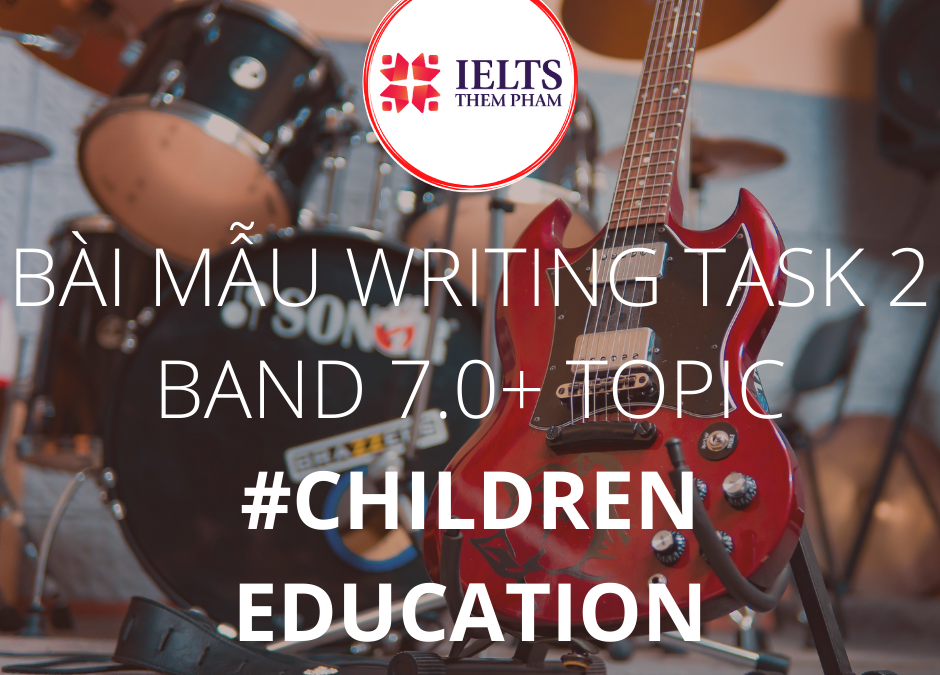BÀI MẪU:
It is increasingly common for young children to start learning how to play musical instruments from an early age. From my perspective, every child should be encouraged to learn such instruments as it offers tremendous benefits to their development.
Firstly, one of the significant advantages is there has long been a correlation between musical training and academic success. The reason for this is that participation in music at an early age can improve children’s learning ability and memory by stimulating different patterns of brain development. Learning an instrument teaches children how to create, store, and retrieve memories more efficiently. Besides, practicing music stimulates creativity. Musical training can enhance verbal memory, spatial reasoning, and literacy skills. As a result, young students who take music classes in school perform better in math, science, and English than their nonmusical peers.
Another advantage of learning instruments is it provides young children with many invaluable life skills. Firstly, music teaches perseverance and creates a sense of achievement. It is obvious that learning to play an instrument takes a lot of time, patience, and practice. As the child reaches their goals during their music lessons, they will feel a sense of achievement and fulfillment. Secondly, learning musical instruments improves social skills. Playing an instrument enables children to expand their social circle. Joining a musical group at an early age encourages them to develop relationships with other peers from different backgrounds. It also builds leadership and team-building skills and helps them understand the significance of teamwork.In conclusion, it is my firm belief that music education at an early age can improve children’s school performance and teach them patience and necessary social skills.
In conclusion, it is my firm belief that music education at an early age can improve children’s school performance and teach them patience and necessary social skills.







